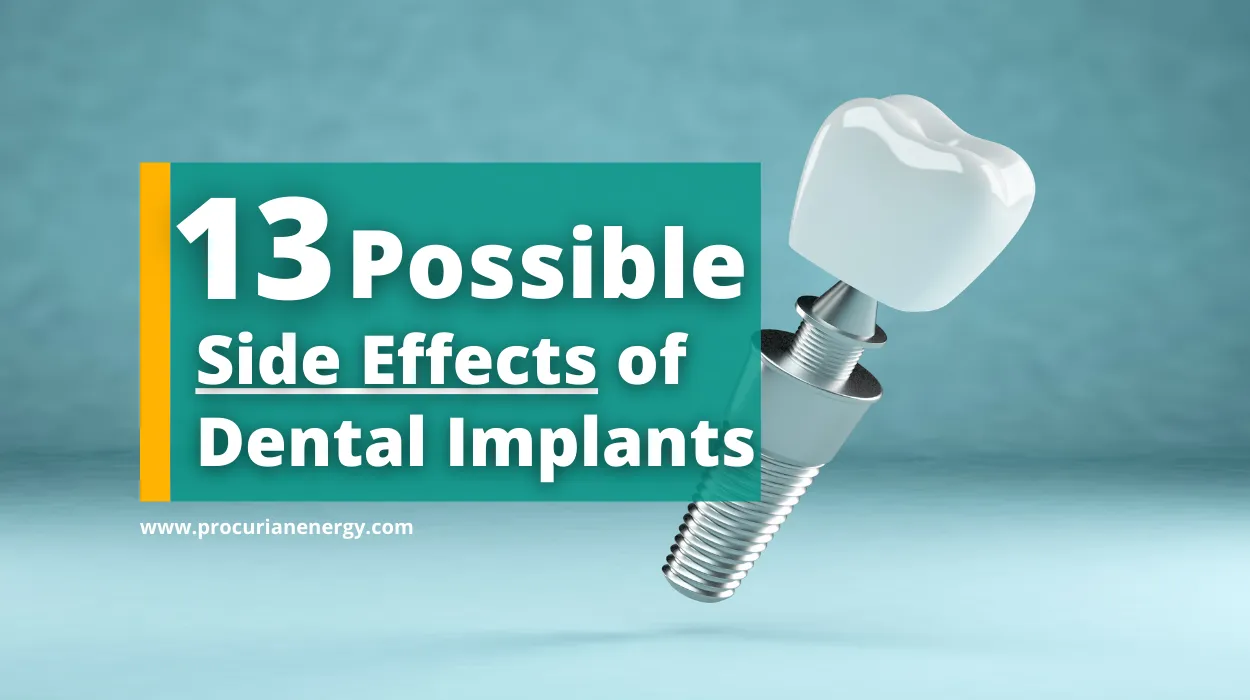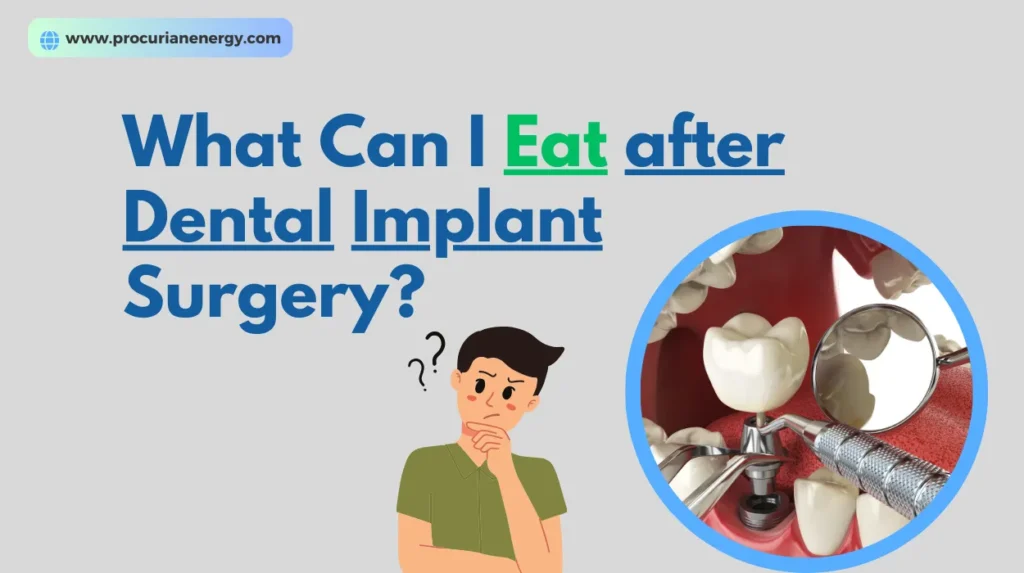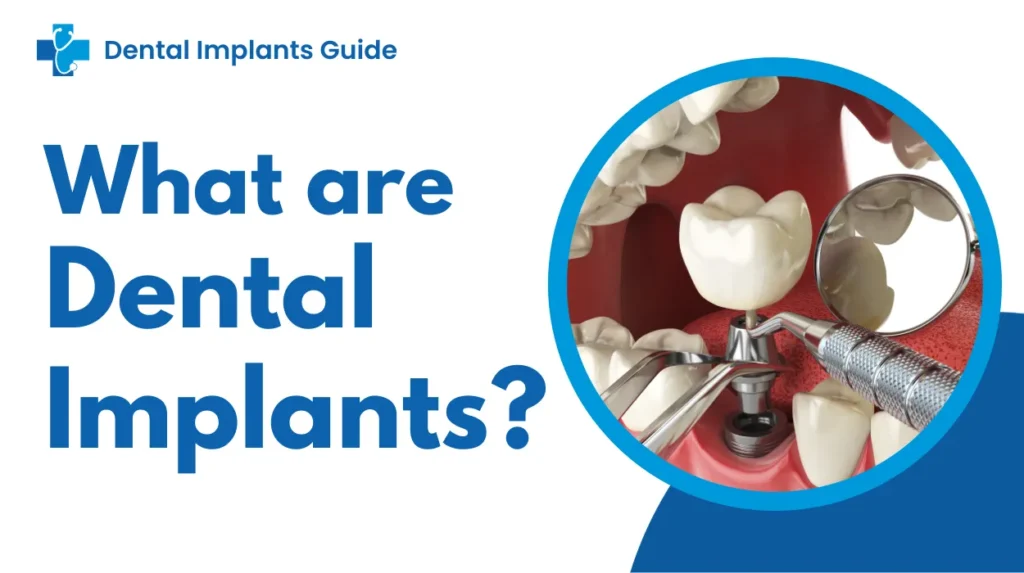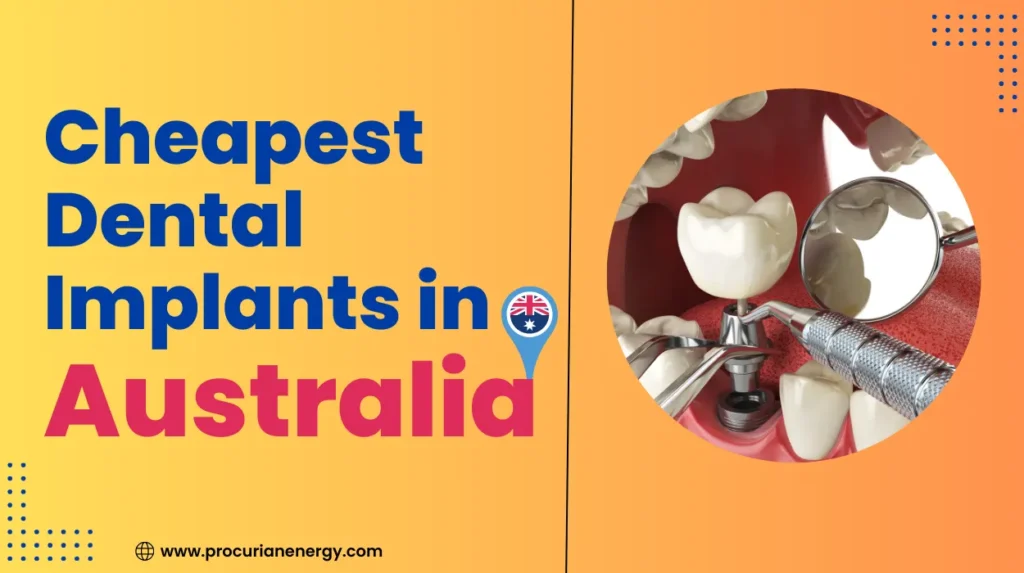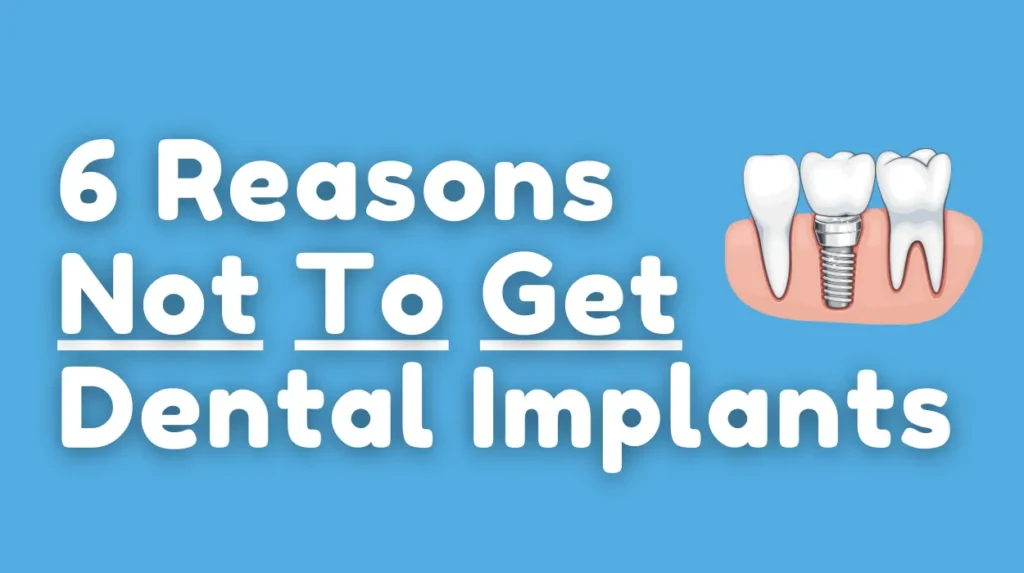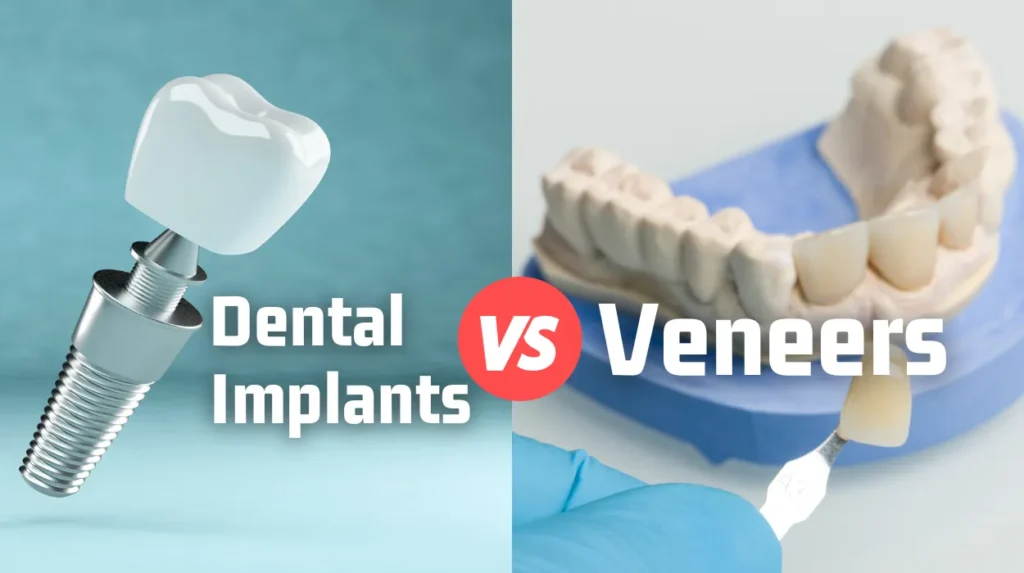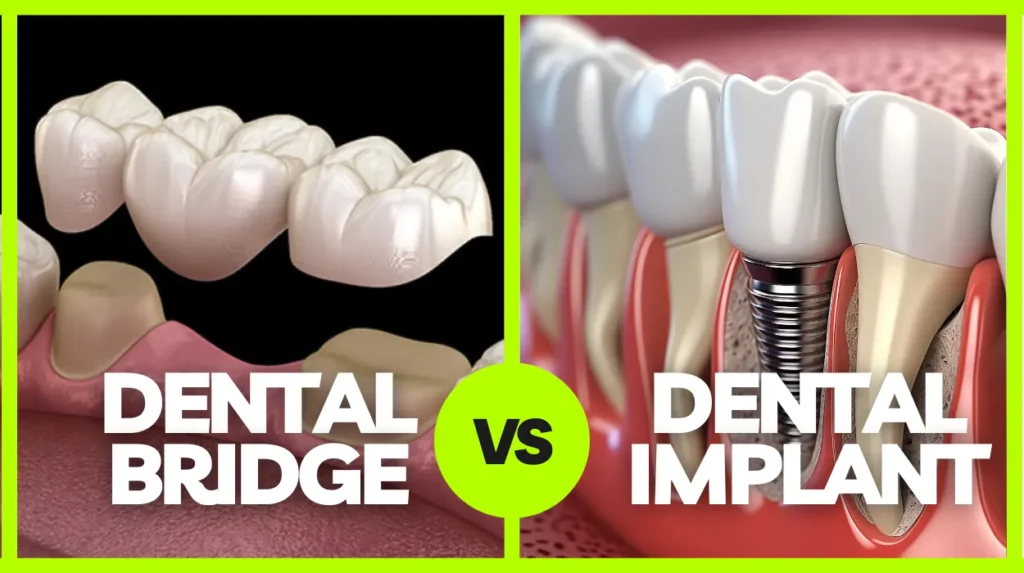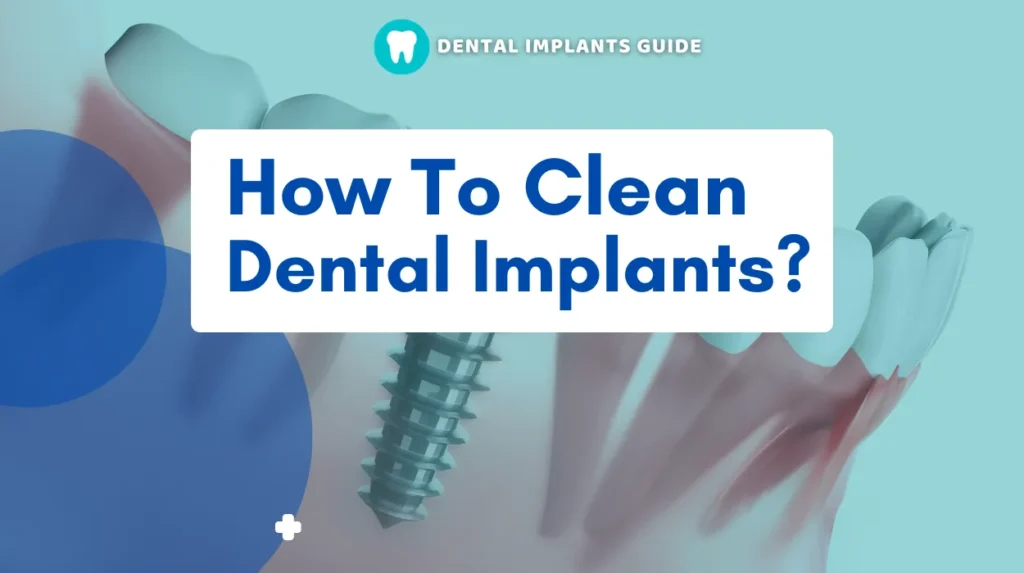Hello there! We understand that dental health is important, and sometimes you may need dental implants to restore your smile.
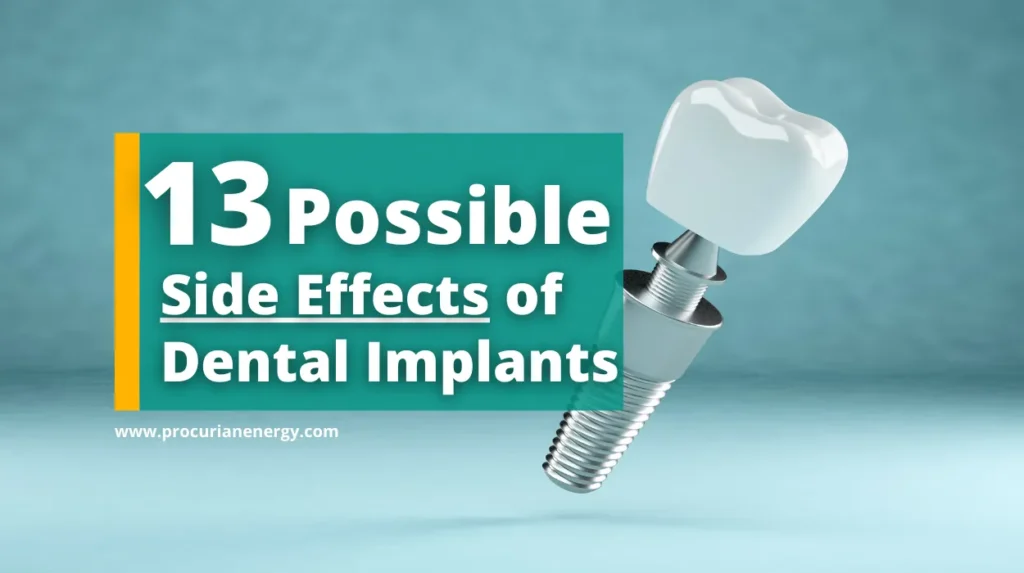
Dental implants can have side effects, though, just like any medical procedure, so it’s important to be aware of them before deciding.
Simple explanations of dental implants, their typical side effects, and steps you can take to reduce them will all be covered in this article.
What Are Dental Implants?
Dental implants are like little anchors that go into your jawbone to support replacement teeth.
They’re like the roots of your natural teeth. They’re used when you’ve lost a tooth or teeth due to injury, decay, or other reasons.
The dental implant process involves a few steps:
- First, the dentist will examine your mouth and take X-rays to plan the implant placement.
- Then, a small titanium post is placed into the jawbone during a surgical procedure.
- After this, a healing period is necessary to allow the implant to fuse with the bone.
- Finally, a custom-made artificial tooth, called a crown, is attached to the implant.
Why Choose Dental Implants?
Dental implants offer numerous advantages, such as:
- Improved appearance – They look and feel like real teeth.
- Enhanced confidence – Say goodbye to gaps or dentures.
- Better speech – No worries about slurred words or mumbling.
- Easier eating – Enjoy your favorite foods without difficulty.
- Durability – With proper care, dental implants can last a lifetime.
Common Side Effects of Dental Implants
Like any medical procedure, dental implants can come with some side effects. Fortunately, most of these are temporary and manageable. There are many types of dental implants. Each type of implant has its own benefits and side effects. Some common side effects of dental implants are:
1. Pain and Discomfort

After getting dental implants, it’s common to experience some pain and discomfort. This is because your jawbone and gums need time to heal. Your dentist will prescribe pain relievers to help you manage this discomfort. It usually gets better within a few days.
2. Swelling and Bruising
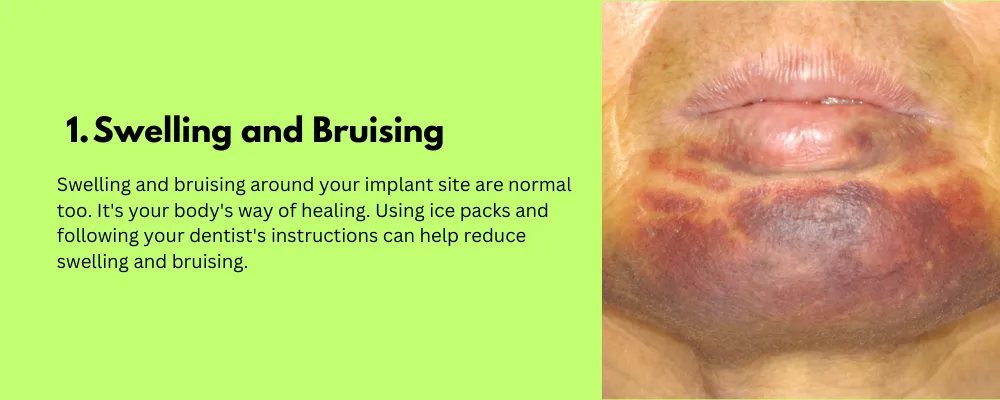
Swelling and bruising around your implant site are normal too. It’s your body’s way of healing. Using ice packs and following your dentist’s instructions can help reduce swelling and bruising.
3. Infection
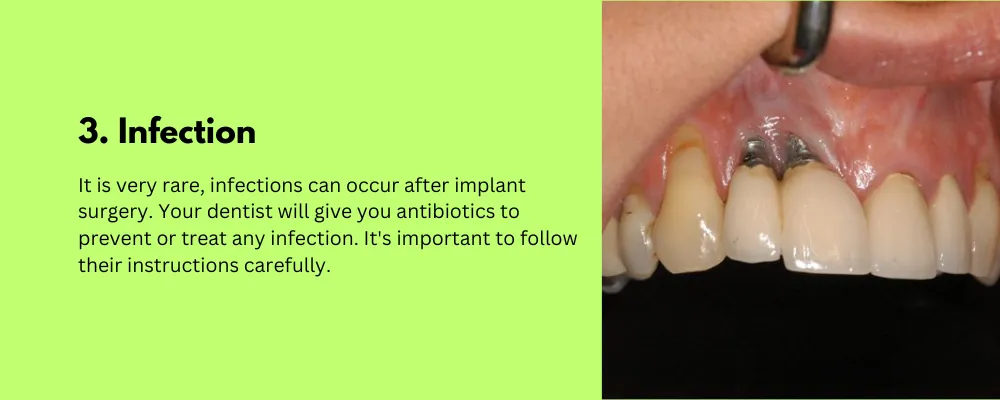
It is very rare, infections can occur after implant surgery. Your dentist will give you antibiotics to prevent or treat any infection. It’s important to follow their instructions carefully.
4. Nerve Damage
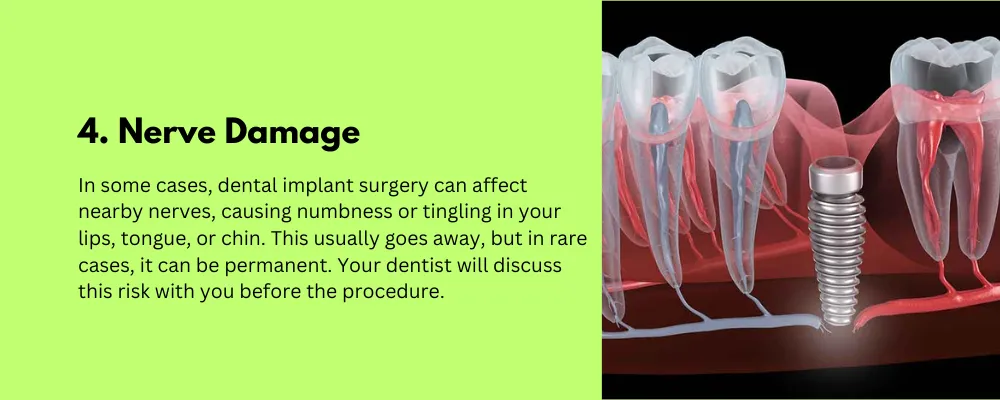
In some cases, dental implant surgery can affect nearby nerves, causing numbness or tingling in your lips, tongue, or chin. This usually goes away, but in rare cases, it can be permanent. Your dentist will discuss this risk with you before the procedure.
5. Implant Failure
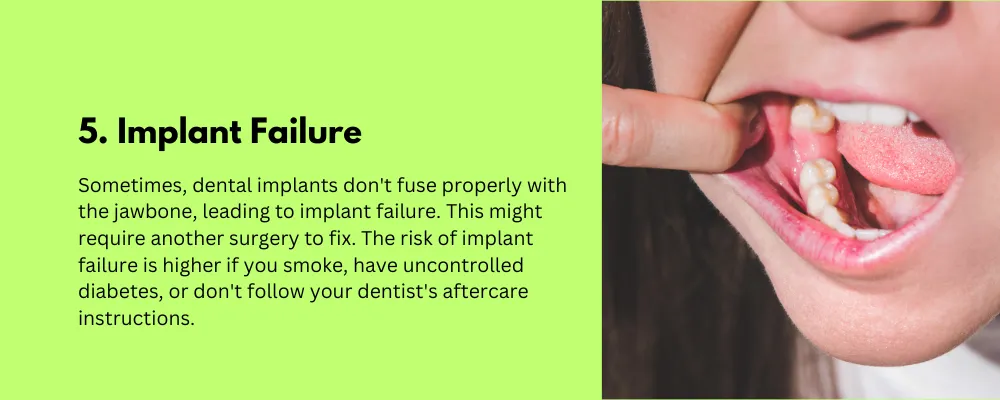
Sometimes, dental implants don’t fuse properly with the jawbone, leading to implant failure. This might require another surgery to fix. The risk of implant failure is higher if you smoke, have uncontrolled diabetes, or don’t follow your dentist’s aftercare instructions.
6. Allergic Reactions
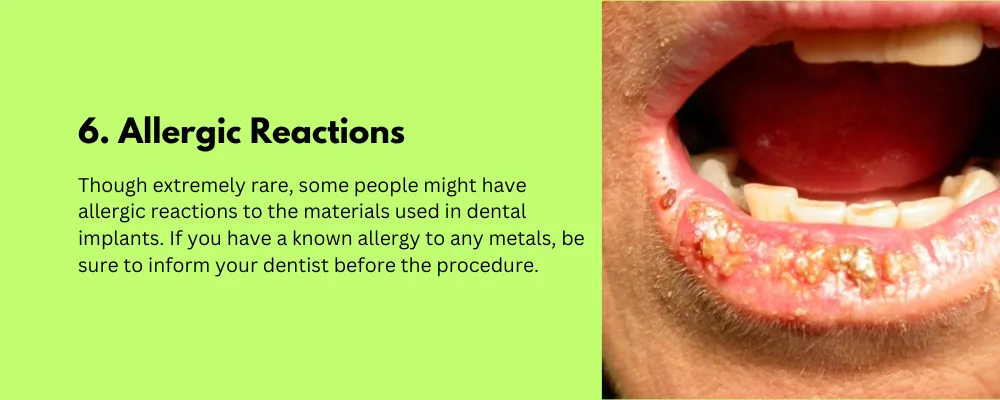
Though extremely rare, some people might have allergic reactions to the materials used in dental implants. If you have a known allergy to any metals, be sure to inform your dentist before the procedure.
Also See: Dental Bridge vs Dental Implant
7. Bleeding
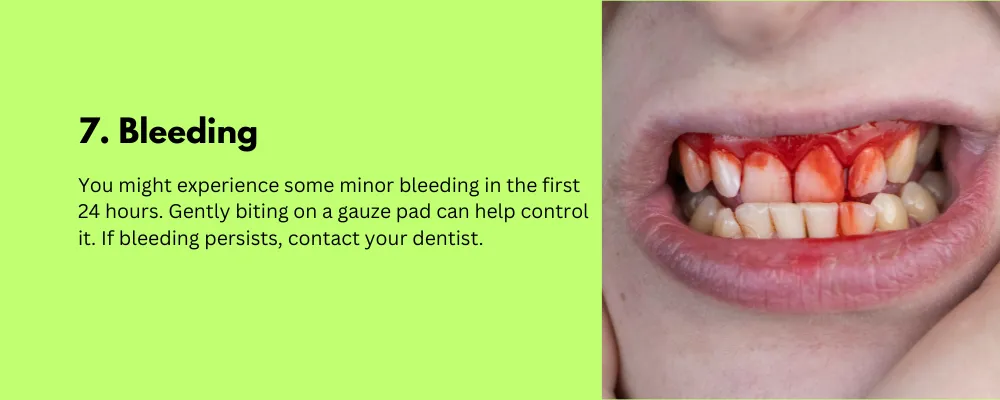
You might experience some minor bleeding in the first 24 hours. Gently biting on a gauze pad can help control it. If bleeding persists, contact your dentist.
8. Gum Recession
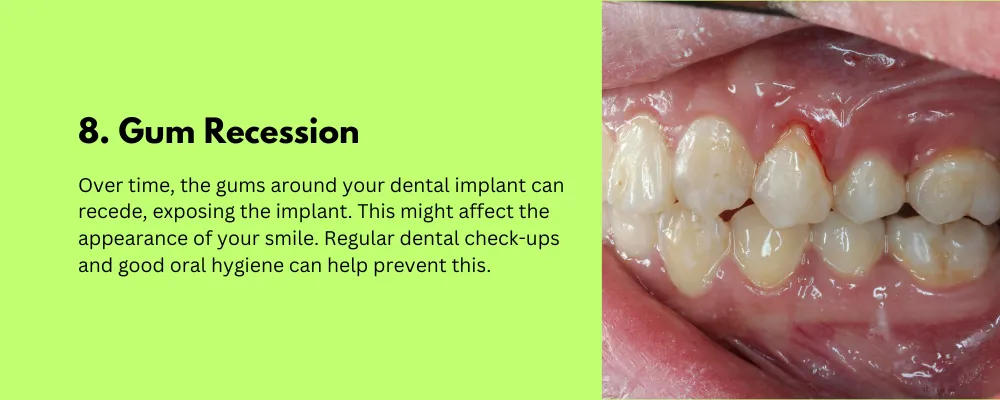
Over time, the gums around your dental implant can recede, exposing the implant. This might affect the appearance of your smile. Regular dental check-ups and good oral hygiene can help prevent this.
9. Implant Loosening
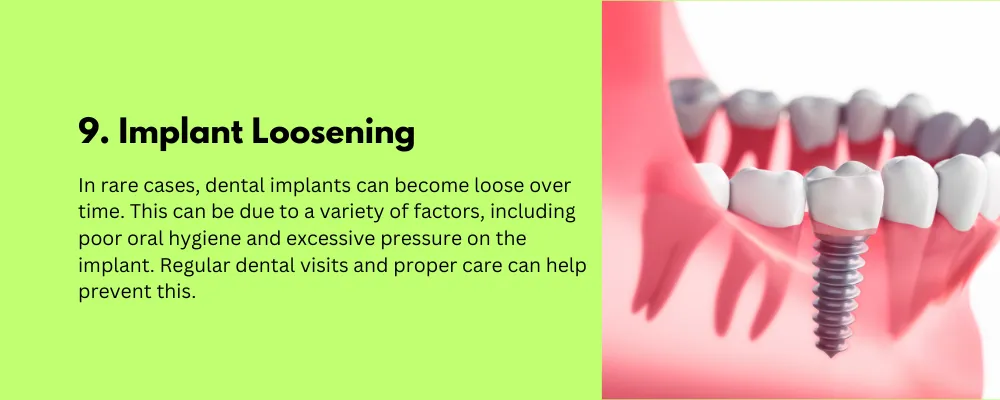
In very few cases, dental implants can become loose over time. This can be due to a variety of factors, including poor oral hygiene and excessive pressure on the implant. Regular dental visits and proper care can help prevent this.
10. Ongoing Maintenance
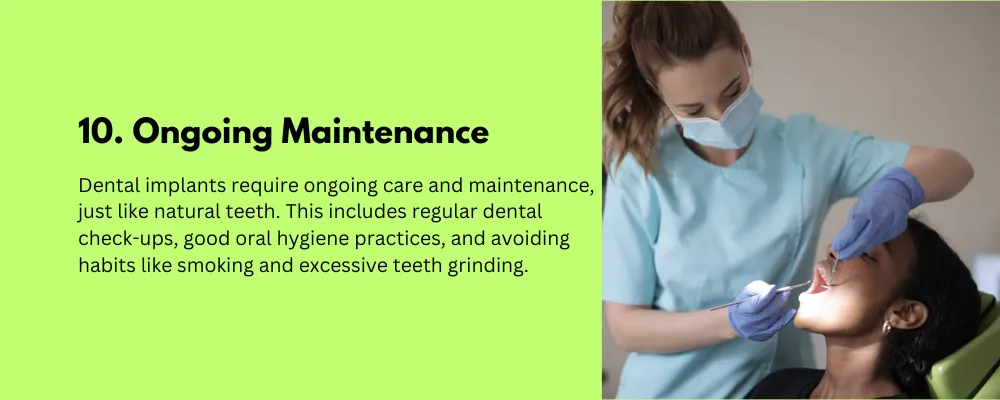
Dental implants require ongoing care and maintenance, just like natural teeth. This includes regular dental check-ups, good oral hygiene practices, and avoiding habits like smoking and excessive teeth grinding.
11. Numbness or Tingling

Numbness or tingling around your mouth, lips, or tongue may occur due to nerve irritation during surgery. This is usually temporary and improves as you heal.
12. Sinus Problems

For dental implants in the upper jaw, there’s a slight risk of sinus problems. This occurs if the implant protrudes into the sinus cavity. Your dentist will evaluate this risk before the procedure.
| Side Effect | Likelihood |
|---|---|
| Pain and Discomfort | Common |
| Swelling and Bruising | Common |
| Infection | Rare |
| Nerve Damage | Rare |
| Implant Failure | Possible |
| Allergic Reactions | Extremely Rare |
| Sinus Problems | Possible (Upper Jaw Implants) |
| Gum Recession | Possible |
| Implant Loosening | Rare |
| Ongoing Maintenance | Required |
How to Minimize Side Effects?
Here are some tips to manage and minimize side effects:
- Follow post-operative instructions carefully.
- Take prescribed medications as directed.
- Apply ice to reduce swelling.
- Avoid strenuous activities immediately after surgery.
- Stick to a soft diet(avoid dairy products) during the initial healing period.
- Maintain good oral hygiene to prevent infection.
When to Call Your Dentist?
While most side effects are normal, there are situations where you should contact your dentist promptly:
- Excessive bleeding that doesn’t stop.
- Severe pain not relieved by prescribed medications.
- Signs of infection like pus, fever, or persistent swelling.
- Numbness or tingling lasting more than a few days.
- Implant feels loose or unstable.
Are there long term effects of dental implants?
Yes, there can be some long-term effects of dental implants, but don’t worry, they are mostly positive!
Here’s what you can expect in the long run:
- Preserved Jawbone – Dental implants actually help keep your jawbone healthy by stimulating it. This means you’re less likely to have bone loss, which can happen when you lose natural teeth.
- Better Eating – With dental implants, you can eat all your favorite foods comfortably, just like you did with your natural teeth.
- Cost-Effective – While the initial cost of dental implants can be high, they can be more cost-effective in the long run because they last a long time.
- Natural Feel – Over time, you’ll get used to them, and they will feel just like your own teeth. You can eat, talk, and smile without any worries.
How do you know if your body is rejecting a dental implant?
If your body is not happy with a dental implant, it might show some signs like:
- Pain – You might feel more pain than usual around the implant site.
- Swelling – Your gums could get swollen and hurt.
- Looseness – The implant may feel wiggly or not as secure as before.
- Infection – If it gets infected, you might notice redness, pus, or a bad taste in your mouth.
- Gum Problems – Your gums might bleed or pull away from the implant.
- Bad Smell or Taste – You could have a bad smell or taste around the implant.
Can dental implants cause problems years later?
Yes, dental implants can sometimes cause problems years later, but it’s not very common. These problems can include things like the implant getting loose or an infection happening.
Are dental implants worth it?
Yes, dental implants are usually worth it. They can make your smile look and feel great again. They help you eat and talk better, and they can last a really long time with good care.
Important FAQs
Do dental implants hurt?
Yes, there might be some pain after the surgery, but it’s usually manageable with prescribed medications.
How long does swelling last?
Swelling can last up to 48 hours and gradually goes away with time and ice packs.
Will I have bruises after implant surgery?
Yes, bruising is normal and can last a week or two but eventually fades.
Is bleeding common after dental implant surgery?
Minor bleeding in the first day is normal; bite on gauze to control it.
Can I get an infection after dental implant surgery?
While rare, infections can happen; your dentist will give antibiotics to prevent them.
What if I feel numbness or tingling?
Temporary numbness or tingling around the mouth is common and should improve as you heal.
Can I be allergic to dental implants?
Extremely rare, but some people may have allergic reactions to implant materials. Inform your dentist of any allergies.
Final Words
Dental implants are a valuable solution for replacing missing teeth and restoring your smile. While they come with some common and less common side effects, these are usually manageable and can be minimized with proper care and attention.
Remember, any concerns or unusual symptoms should be reported to your dentist promptly to ensure a safe and successful dental implant journey.
